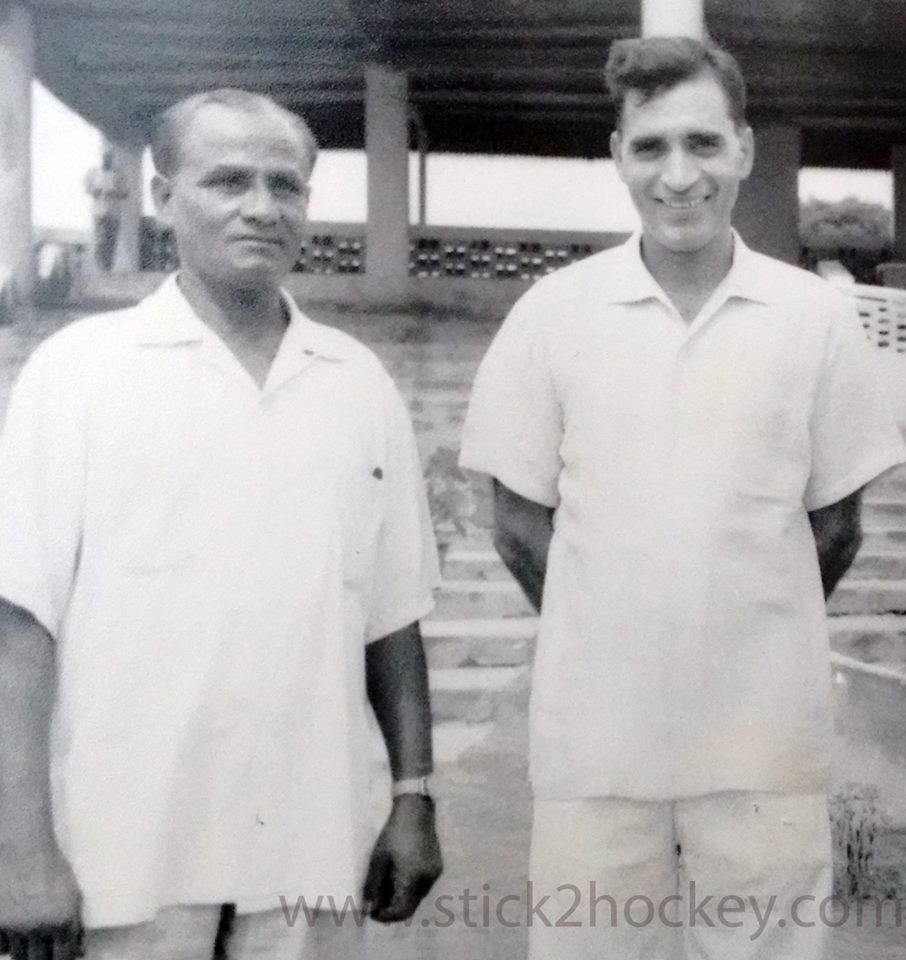Mr Hockey Ashwini Kumar: Doyen of Indian sports
Share
Mr. Hockey Ashwini Kumar,93, who died recently, is one of the finest gentlemen I
interacted with in my journalistic career. Between 2003 and 2007, I met
him routinely at least twice a week to pen his biography, each day a
lesson for me personally and professionally. No doubt he was an
encylopaedia of many fields such as Music, Cinema, Sports, Indian and Imperial
Police era, Olympic Movement etc. But his first love is hockey. He often
used to call servants to tell something or other to Hockey Memsaab, his
daughter. yes, he named his daughter ‘hockey’. When India lost the 1958 Asian Games gold and then Rome Olympics gold, he organized at least 12 test series in India to boot the moral of the sport in India and among the players. India went on to win next Olympics and Asian Games, former without conceding a single goal. He wrote beautifully. But his role in IOC is commendable: while Raja Bhailendra Singh, his contemporary IOC member drew his position being a royal, Ashwini rose from ranks and presented a scholarly erudition.
Two personal incidents I cannot forget:
Firstly, when I showed the first draft of his biography Mr. Hockey Mr
Olympics, his comment: No villification, No glorification. I told him
journalism cannot survive without these two, he retorted: World can still survive. He was a career policemen and had many encounters with
press. Secondly, he asked me whether I had read former president of
India’s book ‘Indian Philosophy’. I said No. He could not bear it, and
just threw on my face whatever he had. I now feel this is the mildest
encounter with career cop. I really miss him. He has undergone heart
surgery four times; and had seen all Olympics from 1948 to 2012 including
the winter ones.
MY ARTICLE IN THE HINDUSTAN TIMES TODAY
The present generation might not know Ashwini Kumar, who breathed his last on Sunday at age 93. But at one time he was one of the most accomplished administrators the country has seen.
Be it sports administration or tackling major security issues, Kumar, who was the International Olympic Committee (IOC) member for more than three decades, carved out a niche for himself.
From gunning down dreaded dacoits like Bhupat in Gujarat to chasing killers of the chief minister of undivided Punjab, Partap Singh Kairon, Kumar, then a young DIG in Punjab Police who later went on to head the Border Security Force, was always in the forefront.
But it was sports that gave him enduring identity. He took charge of hockey from Naval Tata when the sport was in decline, losing the pedestal to Pakistan at the 1958 Asian Games and then the Rome Olympics. He ruled Indian hockey for 15 years, helping it regain lost pride, but as years rolled by controversies surrounded him. The sidelining of such greats like Balbir Singh of Western Railway and Inam-ur-Rahman and his long-standing feud with Prithipal Singh, did affect his popularity. But he remained obsessed with hockey, so much so that he named his elder daughter ‘Hockey’! It goes to his credit that the Indian hockey team never returned without a returned as long as he was IHF chief.
But Kumar’s worth as a sports administrator with immense talent came to the fore when he left hockey and moved to the IOC as its Indian representative in 1973. Those were turbulent times for the Olympic Movement. Cold War, apartheid and athletes seeking asylum in Olympic host countries weakened the movement.
When the United States was contemplating boycotting the 1980 Moscow Olympics, Kumar delivered a memorable speech — he said, ‘Let us boycott all boycotts’ at the IOC Congress, ironically held in the US, at Lake Placid. “I was noticed in the Olympic fraternity with that speech,” Kumar said later.
It was Kumar who dealt a blow to Julian Roosevelt’s — younger brother of US President Theodore Roosevelt — aspirations in the IOC vice-presidential election, even though the 1984 Olympics were being held in Los Angeles. Kumar got 49 votes to Roosevelt’s 24.
During his stint with the IOC, he had several meetings with the North Korean dictator-president to ensure the 1988 Seoul Olympics went off peacefully. “I spent hours sitting with the Korean dictator, just listening. Those meetings were meant to buy time,” he used to say. The IOC supremo, Juan Antonio Samaranch, soon made him the first Member Security. “He (Samaranch) invented the post for me,” he said.
It was Kumar’s cool but temperamental genius that earned a name for us in the Olympic Movement.
The writer is a hockey historian and editor www.stick2hockey.com



